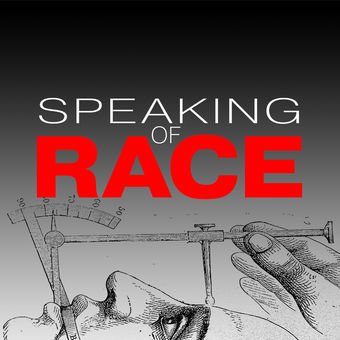🚀 From Google Podcasts to Moon FM in No Time: Your Hassle-Free Migration Guide
👉

An exploration of the past, present, and future debates, issues, and thoughts about race in the light of science
 In this episode we describe some of the early roots of eugenics and Erik describes his three-ingredient model for eugenics.
In this episode we describe some of the early roots of eugenics and Erik describes his three-ingredient model for eugenics.  In this episode we interview Erik Peterson about the book he recently released with fellow historian, Margaret Peacock, about the crazy pandemic year of 2020. Race features prominently throughout!
In this episode we interview Erik Peterson about the book he recently released with fellow historian, Margaret Peacock, about the crazy pandemic year of 2020. Race features prominently throughout! In this episode we respond to a listener question about our top 5 examples of scientific racism. Unfortunately, in the five years of this podcast, we’ve only discussed two of these people/topics, so we’ve got a lot of work to do to get up to speed. The transcript (below) includes references and resources for these topics.
In this episode we respond to a listener question about our top 5 examples of scientific racism. Unfortunately, in the five years of this podcast, we’ve only discussed two of these people/topics, so we’ve got a lot of work to do to get up to speed. The transcript (below) includes references and resources for these topics.  At least since Stephen Jay Gould's 1981 classic Mismeasure of Man, Darwin has been characterized as a kindly anti-racist while Morton has been characterized as a founding father of scientific racism. We argue that the two men were much more alike in their views on both slavery and race.
At least since Stephen Jay Gould's 1981 classic Mismeasure of Man, Darwin has been characterized as a kindly anti-racist while Morton has been characterized as a founding father of scientific racism. We argue that the two men were much more alike in their views on both slavery and race.  In this episode, we talk with evolutionary biologist Joe Graves and biological anthropologist Alan Goodman about their roles as thought leaders on public education around race, racism, and science. They tell us about how they came to collaborate on their new book Racism not Race: Answers to Frequently Asked Questions, which tackles many of these issues. As promised, here are the links to the Wikipedia pages for Joe and for Alan so you can see some of their many accomplishments. Also as promised in the episode, here is Joe’s paper telling why Lewontin’s fallacy isn’t a fallacy, a key argument against biological races in humans. If you want more, you’ll have to listen to the episode and buy the book!
In this episode, we talk with evolutionary biologist Joe Graves and biological anthropologist Alan Goodman about their roles as thought leaders on public education around race, racism, and science. They tell us about how they came to collaborate on their new book Racism not Race: Answers to Frequently Asked Questions, which tackles many of these issues. As promised, here are the links to the Wikipedia pages for Joe and for Alan so you can see some of their many accomplishments. Also as promised in the episode, here is Joe’s paper telling why Lewontin’s fallacy isn’t a fallacy, a key argument against biological races in humans. If you want more, you’ll have to listen to the episode and buy the book!  Eugenics: the science and practice of promoting “good breeding” among humans. An early-20th-century movement so steeped in white supremacy that even some white people don’t count, much less people of color. Here we begin a series with more than you ever wanted to know about the sinister history of eugenics, including mass sterilization campaigns in the US and direct connections to the Holocaust.
Eugenics: the science and practice of promoting “good breeding” among humans. An early-20th-century movement so steeped in white supremacy that even some white people don’t count, much less people of color. Here we begin a series with more than you ever wanted to know about the sinister history of eugenics, including mass sterilization campaigns in the US and direct connections to the Holocaust. 
 In this episode we finish our discussion of skin color with genetic and evolutionary models proposed throughout the 20th and into the 21st century. Spoiler alert: It's complicated!
In this episode we finish our discussion of skin color with genetic and evolutionary models proposed throughout the 20th and into the 21st century. Spoiler alert: It's complicated! Your feedback is valuable to us. Should you encounter any bugs, glitches, lack of functionality or other problems, please email us on [email protected] or join Moon.FM Telegram Group where you can talk directly to the dev team who are happy to answer any queries.